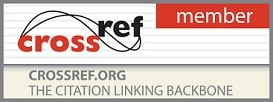Outcome following fenestration discectomy among cases with lumbar disc disease
2019, Volume 5 Issue 3
Outcome following fenestration discectomy among cases with lumbar disc disease
Author(s): Dr. Murali SM, Dr. Prabhat A, Dr. Sundara Rajan T and Dr. Arul Jothi V
Abstract: Background: Low back ache, a common orthopedic morbidity caused due to lumbar disc disease. Fenestration discectomy as a surgical procedure is less time consuming, with lesser blood loss, lesser post-operative complications and does not compromise with stability of spine when compared to other procedures.
Objectives: To assess the functional outcome in terms of pain relief and the neurological recovery following the procedure of fenestration discectomy among the cases with lumbar disc disease.
Methods: Cross sectional study was conducted among the patients admitted with lumbar disc disease in department of Orthopedics in Sri Muthukumaran Medical College Hospital and Research Institute, Chennai during month of June 2016 to April 2018, for elective surgical procedure, fenestration Discectomy. Thirty patients were included and the functional and economic outcome was assessed using Prolo scale. Data was analyzed using SPSS 17.
Results: Mean Preoperative Functional Score was found to be 2.64 and mean Preoperative Economic Score was found to be 2.66. Similarly mean Post-operative Functional Score was found to be 4.19 and mean Post operative Economic Score was found to be 4.27. Outcome using prolo scale was found to be 70% and 305 of cases ion good and moderate outcome and there was no case with poor outcome.
Conclusion: Functional outcome of fenestration technique in terms of return to work and complete pain relief at end of six months had been satisfactory in this study irrespective of the duration of symptoms.
Pages: 318-321 | 902 Views 86 Downloads
How to cite this article:
Dr. Murali SM, Dr. Prabhat A, Dr. Sundara Rajan T, Dr. Arul Jothi V. Outcome following fenestration discectomy among cases with lumbar disc disease. Int J Orthop Sci 2019;5(3):318-321. DOI: 10.22271/ortho.2019.v5.i3f.1548






